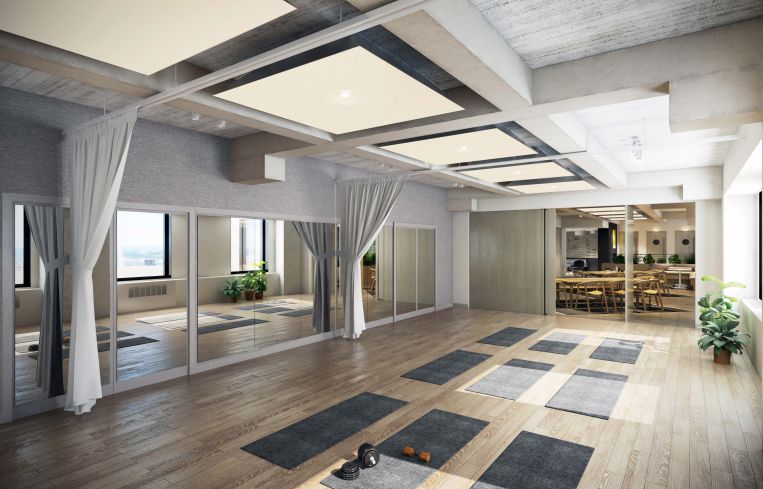Coworking Firms Draw Tenants With Babysitting, Farm-to-Desk Dining
By Larry Getlen August 13, 2019 2:17 pm
reprints
Long gone are the coworking days when it was enough to offer a cheap desk and maybe a beer keg.
At, for instance, The Wing, the coworking space designed for women, which will count at least 13 locations by year-end, members are offered showers, a roof deck, a beauty room, and even a recently-launched babysitting space called Little Wing that provides open play and story time for children and support groups for mothers. Now available in their Soho and West Hollywood locations, Little Wing will eventually be rolled out throughout the chain.
While these might seem extravagant for an office, they’re actually right in line with the sort of luxury amenities tenants can now expect from coworking spaces.
“When we were conceptualizing The Wing in the early days, one of the key considerations that was core to our business model was, ‘What are the things everyday working women need in order to be successful?’” said Zara Rahim, spokeswoman for The Wing. “Each of these experiences and parts of the physical space are answers to those questions.”
Convene, with 11 flexible office locations worldwide including three in New York, offers high-end food and beverage service including “farm-to-desk dining”; “nourish stations” with free snacks, beer, kombucha, espresso, and mini smoothies or ceviche cups; fitness and wellness perks including Peloton bikes and steam rooms through a partnership with Hydra Studios; and even on-site health care services from Eden Health.
Ryan Simonetti, Convene’s co-founder and CEO, views the growth of coworking amenities as an offshoot of changes taking place throughout the modern office environment.
“It’s more than just coworking, it’s the entire workplace,” said Simonetti. “For me, everything comes down to experience. How can you provide the services, hospitality, and amenities that allow member companies to attract, retain, and inspire their talent?”
IWG, which operates the coworking brands Regus, Spaces, and HQ, just had its U.S. premiere of its high-end brand, No18, in Atlanta. The amenities there include a full-service chef preparing breakfast and lunch daily.
“Back in time, ‘amenities’ were a boardroom that customers could use, or a receptionist meeting and greeting guests,” said Michael Berretta, vice president of network development at IWG. “Now, we’re putting full-service baristas and coffee shops in our Spaces locations, and many of our locations have roof decks or outdoor patios. It’s the natural evolution of a competitive industry.”
Owners of coworking spaces are increasingly offering the sort of extras designed to make the workplace, however temporary, feel like a place worthy of lingering.
The Yard, with 11 locations in New York City, goes far beyond offering just event spaces and roof decks — although they have those at certain locations — to include art galleries, gyms, a wellness program including meditation and yoga, and on-site health care.
In a partnership with Leaa, The Yard offers access to in-office doctor’s appointments and other medical services for $20 a month.
But Morris Levy, The Yard’s CEO, compares the amenities to sprinkles on ice cream: enticing extras, but only worth noting if the basic product serves the customers’ needs.
“I’m probably atypical,” he said. “I believe amenities are like how, when you’re looking for an apartment, you want a gym and a pool. But then when it comes down to it, do you use it? No. But you’re happy it’s there.” It’s not much different for coworking, he said.
“We’ve always been offering what we feel is meaningful,” he said. “There are people who take advantage of it, and there are members that just want the quality we offer. That, to me, is the most important thing.”



